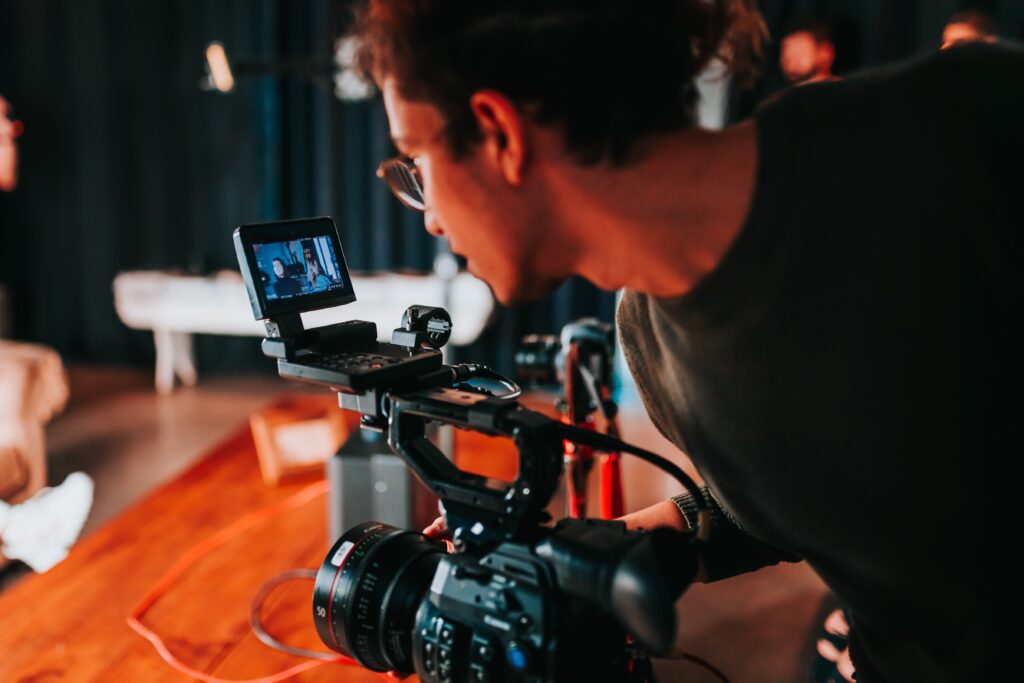INDUSTRY
The industry is already feeling the effects of the actors’ and writers’ strike
Advanced Television: The actors’ and writers’ strike in the US is already having a major impact on the scale of advertising spending. In June, consumption fell again and reached the third lowest volume in the last seven years and the lowest since the covid-19 pandemic, according to the analyst company Guideline. Similar to the pandemic, when production came to a halt, the industry is experiencing a ripple effect from the strike. The point is that over time there will be less content available for the media to deliver to the audience, so advertisers will advertise less. Media companies will therefore have less capital available for new production, which can cause a negative cycle for a longer period of time. Learn more at this link.
Hollywood Reporter: Screenwriters in the US have been on strike for more than 100 days, and no agreement with the studios is on the horizon. Outgoing Screenwriters Guild of America East Coast president Michael Winship says this strike is a little different than the strike that took place between November 2007 and February 2008. “The studios are more ‘stubborn’ now, so the strike will last a little longer,” he said. . Learn more at this link.
The Hollywood Reporter:The non-profit organization The Hollywood Professional Association (HPA), which unites various associations in the field of post-production, has expressed concern for the existence of the media content chain in an open letter due to the strike of actors and screenwriters. Among other things, the letter calls on all parties involved to find solutions to the problems that led to the strike and thus the work stoppage in Hollywood. The HPA points out that the negative effects of the strike are already being felt, particularly in areas such as post-production, visual effects and production support. The organization also warned of the growing economic toll on companies in the supply chain and their employees. Indeed, many companies have already started to reduce the scope of their activities, so they are forced to lay off people, which means that many professionals are already leaving the industry. More about it on this oneconnection.
Artificial intelligence brings development, but also worries about copyright
Financial Times: Google and Universal Music are reportedly in talks to license artists’ voices and melodies for songs created by artificial intelligence, the Financial Times reported. It cites sources familiar with the matter. The companies are reportedly seeking to establish a partnership between the music industry and major tech companies to control the emergence of artificially created deep fakes using artificial intelligence. Learn more at this link.
Hollywood Reporter: The rise of generative artificial intelligence is an opportunity for everyone, but it also brings many concerns. “The Wall Street Journal (WSJ) is no exception in this area,” said the executive director of the mentioned medium, Robert Thomson. As he said, WSJ management is in contact with technology companies that manage artificial intelligence. They mainly discuss the determination of the value of content and the protection of intellectual property in general. Learn more at this link.
Viewership of streaming platforms is growing
Advanced Television: Streaming platforms recorded increased daily user engagement in the first half of this year. For the first time since 2021, the number of minutes of video-on-demand content that consumers watch on these platforms per day increased globally by four percent, according to research firm NPAQ. This is the reverse of the trend we witnessed in 2021, when viewership decreased after the gradual lifting of restrictions due to the covid-19 pandemic. Learn more at this link.
Meanwhile, Viaplay is reducing production
Nordisk Film & TV Fond: The Viaplay Group, which is one of the largest film and series subscribers in Scandinavia, announced at the beginning of July that it will significantly reduce the volume of orders in the Nordic countries. Annual production is expected to be reduced from 50 to 10 titles, so the number of employees will also be reduced by a quarter. Scandinavian production companies and public institutions regret Viaplay Group’s decision. This has been suffering from poor business results for some time, so the company’s management has decided to cut costs. More about this at this link .
Euroactiv: Commentary entitled Is Europe sinking into technological irrelevance ? Learn more at this link.
LEGAL TOPICS
Kluwer Copyright Blog: Commentary on different approaches to regulating the field of generative artificial intelligence around the world . The EU is expected to adopt an act on artificial intelligence by the end of the year, in Great Britain there is currently a debate on the formulation of principles that will be the basis for later legislation, and in the USA there is a debate between the research and development industry. Despite this, two lawsuits have already been filed in the US against OpenAI, the company that operates ChatGPT. The first accuses the company of an alleged violation in the area of data usage, while the second is based on alleged copyright violations. Learn more at this link.
